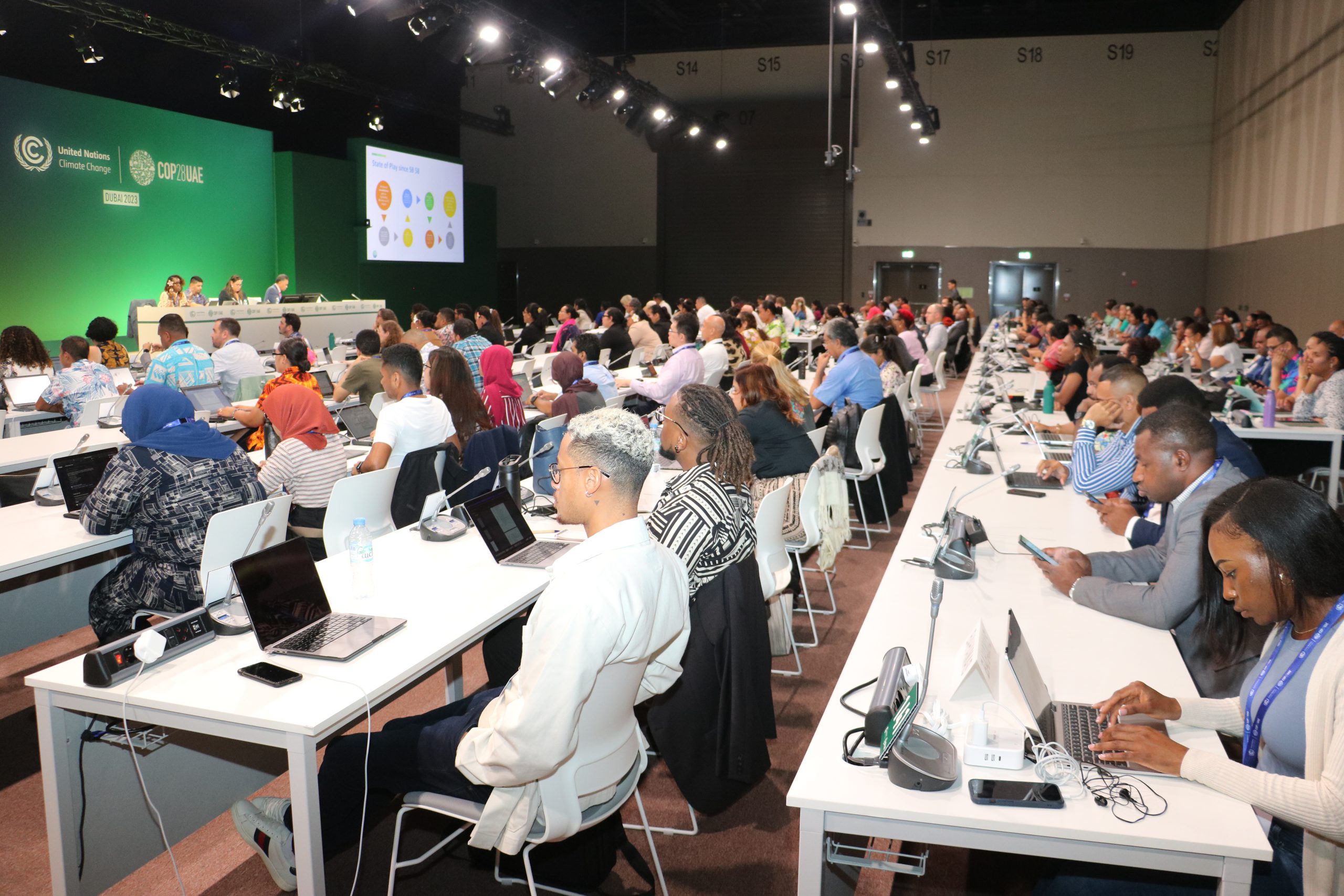PRESS RELEASE

Achieving a robust Global Stocktake, keeping 1.5C goal are imperative to SIDS’ survival. Dubai, 27th November, 2023 Small island developing states (SIDS) from the Pacific, Caribbean, African, Indian Ocean and South China Seas have converged in Dubai ahead of the pivotal United Nations climate summit, COP28, to solidify priorities that must be achieved to give SIDS the best chance of sustainably coping with worsening climate change impacts. At SIDS Prep days on November 26th and 27th, all lead coordinators for the Alliance of Small Island States (AOSIS), the negotiating bloc for SIDS, presented on the state of play, giving critical updates on the various thematic topics that will be negotiated at COP28. Chair of AOSIS, Ambassador Fatumanava-o-Upolu III Dr Pa’olelei Luteru stated that AOSIS will be taking a strong approach on issues central to safeguarding vulnerable countries, such as the Global Stocktake (a tool within the UNFCCC which assesses progress of all countries’ actions to address climate change). “This is a global mission for the greater good. SIDS have been making significant strides on climate action, but we must be realistic. We account for less that 1% of global emissions. The developed countries which contribute 80% of the world’s carbon emissions must raise their ambition. They must lead on fossil fuel phaseout. Phasing out fossil fuel subsidies and making deep, drastic cuts to ensure we reach net zero by 2050 is of the essence. This is a matter of survival not just for our islands, but our world. For our countries on the frontlines of this climate crisis, a strong outcome on the Global Stocktake is imperative. We know we are woefully behind on achieving the climate goals of the Paris Agreement. The GST is a critical process that indicates where we need to re-orientate. We know we must stay within the 1.5°C warming limit if we are to avoid the worst impacts of climate change – impacts our islands are already suffering from, including loss of land from sea level rise, catastrophic loss of lives and homes from more frequent and severe storms, lack of drinkable water, agricultural depletion, and more. The GST is based on the best available science which supports this need, and gives us a roadmap for course correction. In addition to the GST and keeping 1.5 alive, at COP28 we must achieve a robust framework for the Global Goal on Adaptation to accelerate action. Failing on ambition here is not an option for SIDS. On Loss and Damage funding arrangements, we look forward to countries taking the recommendations of the Transitional Committee on board so we can finally open the channels of finance to assist the vulnerable countries that desperately need the support. It is fundamental that the Loss and Damage Fund has an adequate scale of capitalisation, at least USD 100 billion for the first four years of the Fund. Small island developing states have been crying out for urgent climate action for over three decades and we get the impression that we are being ignored. So, we are amplifying our call. Now is the time for concrete action. It is real results that matter to us. We cannot, must not go into COP28 with a lot of pledges and no credible commitments. Our survival is at stake. We are all in this together. Small island developing states may be on the immediate frontlines of the climate crisis – but be assured, if we do not act together, it will affect everyone. This is not just coming for us all, it is here. The time to act must be right now.” END ____________________________ Media Contact: Bianca Beddoe | Communications Advisor media@aosis-website.azurewebsites.net
Sub Topic: Mitigation
Forum: UNFCCC
Meeting: COP27
____________________________